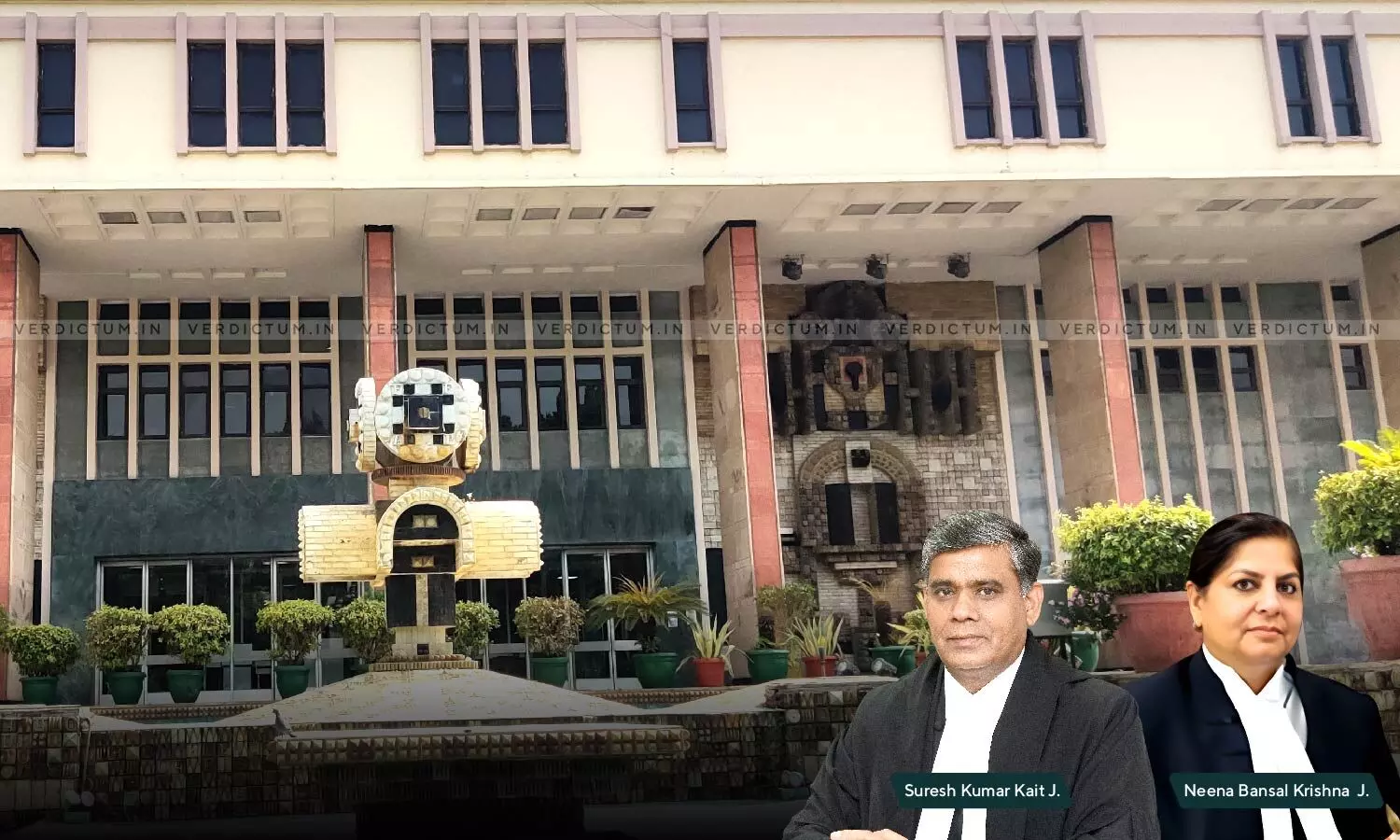
Woman Can Also Be Karta Of Joint Hindu Family Governed By Mitakshara Law: Delhi HC
 |
|The Delhi High Court observed that a woman can also become a Karta of Joint Hindu Family governed by Mitakshara law.
The court said that the right of a woman to be the Karta (head of a Hindu Undivided Family) is no way limited by the Legislature or the traditional Hindu law.
In that vein, the Bench of Justice Suresh Kumar Kait and Justice Neena Bansal Krishna observed that, "contention that the husband of a female Karta would have an indirect control over the activities of the HUF of her father‟s family is only a parochial mindset which even the legislature had diligently attempted to oust through Section 14 of the Act, 1956 to accord women with the long overdue right to be the absolute owner of her property. If a woman is proscribed from becoming a Karta in view of this reasoning as cited by the appellant, it will only render the legislative endeavour to give rights in immovable properties to women through Section 14 of the Act,1956 as a mere mirage. Ergo, a woman who has absolute ownership in a property cannot be denied a right to manage it on the warped reasoning that she may get influenced by her in-laws. Thus, societal apprehension and reluctance can never truncate legislative enactments to do away with patriarchal discrimination."
Subsequently, it was underscored that, "neither the Legislature nor the traditional Hindu Law in any way limits the right of a woman to be a Karta. Also, societal perceptions cannot be a reason to deny the rights expressly conferred by Legislature. There is no impediment in the respondent No. 1 being the Karta of the HUF."
Counsel Aslam Ahmed, along with others, appeared for the appellants. Counsel Mala Goel, along with others, appeared for the respondents.
In this case, the Court was hearing an appeal concerning the status of a woman as the head or Karta of a Hindu Undivided Family (HUF).
Following the demise of all the sons of the family, the issue arose regarding determining the Karta of the family. The granddaughter had asserted her claim as the eldest to be the next Karta. However, male relatives opposed her and declared a male member as the Karta.
The Court rejected the arguments presented by the appellant justifying why it would be incorrect for a woman to become a Karta from the societal standpoint. In that context, it was observed that, "Experience has shown that any culture or practice that is ingrained in the society is bound to face some apprehension and resistance by the society when systemic changes are made to it. But with passage of time it becomes a tool of social change."
In similar context, it was noted that the amendment to Section 6 of the Act, 1956 owes its provenance to the right to equality guaranteed under Article 14 of the Constitution of India.
The Court also observed that the rights of the members in a coparcenary would remain unaffected even if a female coparcener acts as the Karta, and their rights would not get impugned in any manner.
Subsequently, the respondent was declared as the Karta, and the appeal was dismissed.
Cause Title: Manu Gupta vs Sujata Sharma & Ors.
Click here to read/download the Judgment